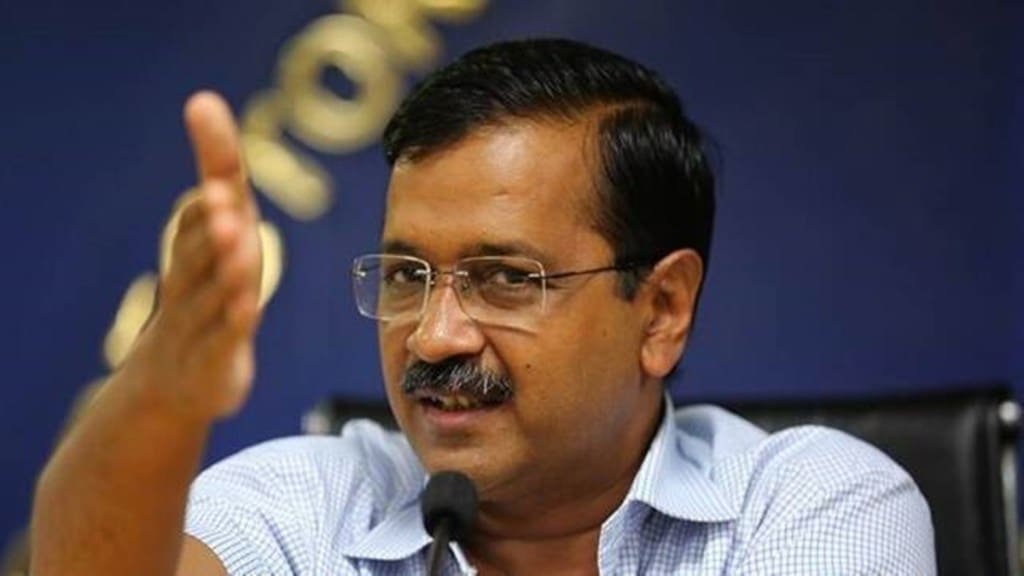While Delhi Chief Minister and national convener of the Aam Aadmi Party (AAP) Arvind Kejriwal was being quizzed by the Central Bureau of Investigation (CBI) on Sunday in connection with the same Delhi excise policy case in which former deputy Chief Minister Manish Sisodia is currently under arrest, his party called for an emergency meeting. They feared that the federal agency may arrest him during questioning like Sisodia who was arrested after almost eight hours of grilling at the CBI headquarters in February.
Ahead of his appearance before the CBI, Kejriwal, in a five-minute video message on Twitter, alleged that the BJP might have ordered the probe agency to arrest him and said they are “very powerful and can send anyone to jail”.
However, in the eyes of the law, every Indian citizen is an ordinary person. Even the Prime Minister can be arrested if a criminal offence is registered against him/her as there are no rules to prevent such an action.
Immunity to President, Governors
The only protection from arrests afforded to a government figure through the Constitution is the President of the Republic, who is immune from civil and criminal proceedings until his/her term ends.
Article 361 of the Constitution states that the President of India and governors of states are not answerable to any court for “any act done in discharge of their official duties”.
This provision particularly states that “The President, or the Governor or Rajpramukh of a State, shall not be answerable to any court for the exercise and performance of the powers and duties of his office or for any act done or purporting to be done by him in the exercise and performance of those powers and duties.”
According to PDT Achary, former Lok Sabha secretary general, under the Constitution, immunity from arrest in both civil and criminal matters is provided only to the President and governors, who cannot be arrested even in criminal offences while they are in office. Any action, even in criminal may only be initiated after they demit office.
Also, the Supreme Court has laid down that while considering prosecution against cabinet members and the chief minister, the governor can act independently without the recommendation of the council of ministers.
Rules to arrest CM, cabinet minister
As far as the CBI is concerned, according to the provisions of the Code of Criminal Procedure 1973 (CrPC), the law enforcement agency can arrest any person against whom an arrest warrant has been issued by the court. The officers have no discretion in carrying out the arrest warrant issued by the courts.
In the case of arresting a chief minister, the CBI can arrest a person who is accused, while adhering and in compliance with certain rules and procedural aspects. They can only be arrested if there is enough reason to believe that the accused would abscond, will try to destroy evidence, or act in a way so as to avoid the legal process.
Therefore, the Chief Minister or de facto head of state government is treated legally, under the capacity of a government official, who can be arrested by the CBI on other grounds which are not relevant to their discharge of official duties since, duties carried out as Chief Minister have been executed in accordance to the Constitution of India, laws, rules and regulations of the Union of India.
Under Section 135 of the Civil Procedural Code, Members of Parliament have protection from being arrested up to 40 days before, 40 days after, and during the period when Parliament is in session. With three parliamentary sessions being around 70 days each, the immunity against arrest extends to nearly 300 days in a single year.
However, the protection only extends to civil cases. In matters of criminal nature or arrests on preventive grounds, there is no protection afforded to any member of the Rajya Sabha or Lok Sabha.
J Jayalalitha, first CM to be arrested
Jayaram Jayalalitha, one of India’s most controversial politicians with a unique persona, gained notoriety as she became the first sitting chief minister in the country to demit office and be arrested in connection with the disproportionate assets case. She was arrested on December 7, 1996, and lodged in prison for a month for alleged corruption in the purchase of colour TV sets for villages.

